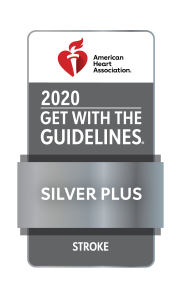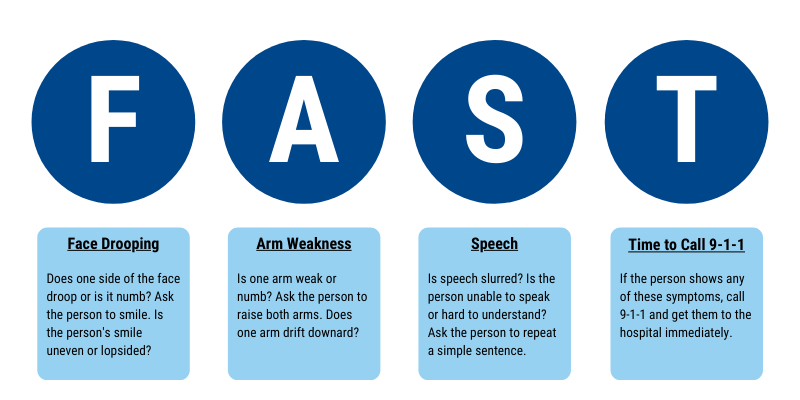At Portneuf, our experienced stroke team offers comprehensive stroke care that includes prevention, response, care and rehabilitation. We are here every step of the way. With our multi-disciplinary approach to care, your team may include neurologists, other physicians, nurses, physical and occupational therapists, speech therapists, dietitians, and respiratory therapists. Together, we look to ensure a healthy, strong recovery for stroke patients.

Providing excellent heart care requires staying on top of constantly advancing treatment recommendations. That's why we follow the latest guidance from the American Heart Association. It's Get With The Guidelines® program helps ensure that patients get the most up-to-the-minute scientifically based treatment. Our team is recognized for adhering to the guidelines, helping our patients live longer, healthier lives. Evaluation metrics include a review of the proper use of medications; confirmation that stroke treatments align with the most up-to-date, evidence-based guidelines; and that the program is focused on both recovery and reducing death and disability for stroke patients. Before discharge, patients receive education on managing their health; they are scheduled for a follow-up visit and are instructed on other care transition interventions.
Stroke Symptoms
According to the American Heart Association/American Stroke Association, stroke is the No. 5 cause of death and a leading cause of adult disability in the United States. On average, someone in the U.S. suffers a stroke every 40 seconds and nearly 795,000 people suffer a new or recurrent stroke each year. Use the letters in "F.A.S.T" to spot stroke signs and know when you need to call 9-1-1.

Reducing Your Risk
According to the American Stroke Association there are several things you can do to reduce your risk of stroke. The following are stroke risk factors you should be aware of:
- High Blood Pressure
- Know your numbers, and keep them low.
- Smoking
- The nicotine and carbon monoxide in cigarette smoke damage the cardiovascular system and pave the way for a stroke.
- Diabetes
- If you have Type 1 or 2 diabetes, control your blood sugar.
- Diet
- Diets high in saturated fat, trans fat and cholesterol can raise blood cholesterol levels. Diets high in sodium (salt) can increase blood pressure. Diets with high calories can lead to obesity. But a diet containing five or more servings of fruits and vegetables per day may reduce the risk of stroke.
- Physical Inactivity
- hysical inactivity can increase your risk of stroke, heart disease, overweight/obesity, high blood pressure, high blood cholesterol and diabetes.
- Obesity
- Excess body weight and obesity are linked with an increased risk of high blood pressure, diabetes, heart disease and stroke.
- High Blood Cholestorel
- Large amounts of cholesterol in the blood can build up and cause blood clots — leading to a stroke.
- Atrial Fibrillation
- Atrial fibrillation, or AFib (a heart rhythm disorder), increases stroke risks fivefold. That's because it causes the heart's upper chambers to beat incorrectly, which can allow the blood to pool and develop a clot.
- Other Heart Disease
- People who have coronary heart disease or heart failure are at higher risk of stroke than people who have healthy hearts. Dilated cardiomyopathy (an enlarged heart), heart valve disease and some types of congenital heart defects can also raise the risk of stroke.
- Sickle Cell Disease
- This genetic disorder mainly affects African-American and Hispanic children and causes “sickled” red blood cells which are less able to carry oxygen to the body’s tissues and organs.
Rehabilitation
Portneuf offers inpatient and outpatient stroke rehabilitation care. Depending on which side of the brain the stroke occurs, there can be further complications. Whether it is physical, communication, emotional or behavioral challenges, our stroke coordinators and neurologists are ready to help you adapt to your new normal. Portneuf Outpatient Neuroscience and Rehabilitation